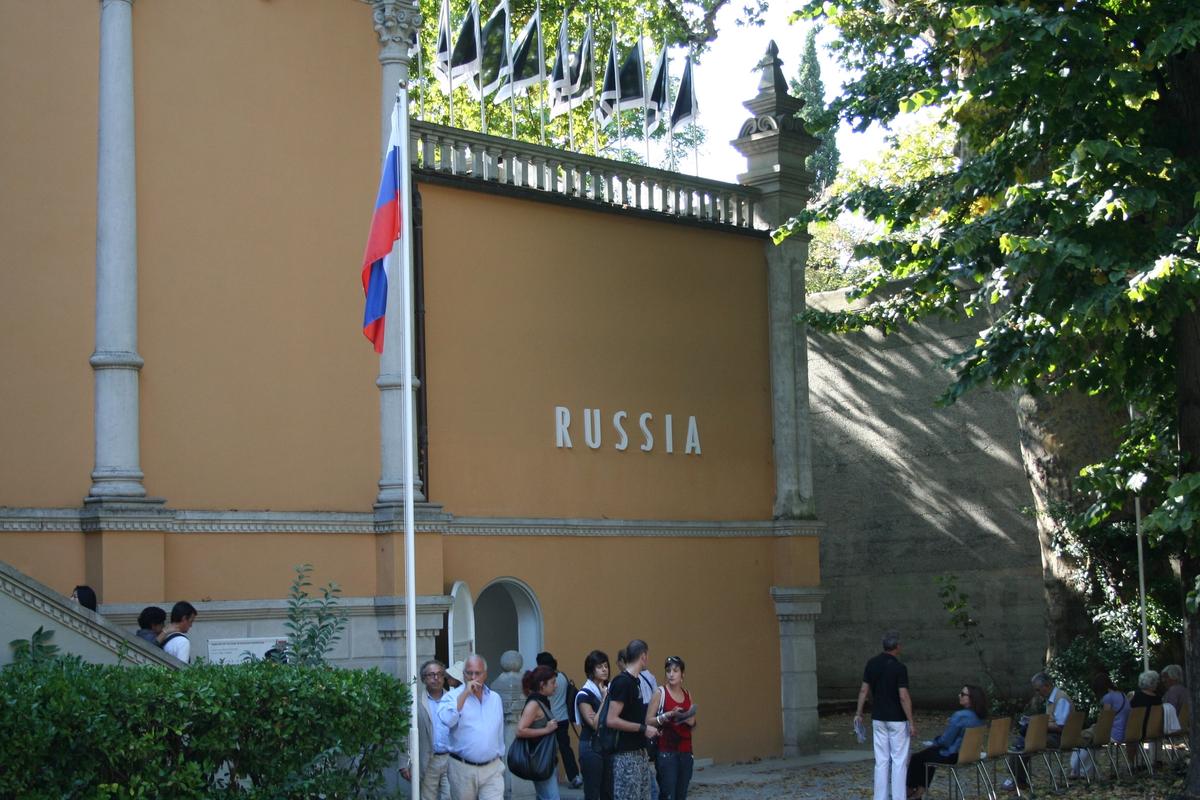As Russia continues its campaign to take over Ukraine after invading on 24 February, bombing and shelling across the country and encircling the capital, Kyiv, hundreds of Russian art world figures and several major private institutions have taken an unequivocal stance against the war. As of Monday, most state institutions have remained glaringly silent.
Taking a stand has great risks. On Sunday, Vyacheslav Volodin, the chairman of the State Duma, Russia’s upper house of parliament, denounced the anti-war statements as “betrayal of the people”. The Prosecutor General’s office warned that any Russians found guilty of assisting a foreign state or organisation in threatening Russia’s security faces up to 20 years in prison.
On 26 February, the Garage Museum of Contemporary Art, founded by Roman Abramovich and Dasha Zhukova, announced that it “has decided to stop work on all exhibitions until the human and political tragedy that is unfolding in Ukraine has ceased.”
“We cannot support the illusion of normality when such events are taking place.”
Garage director Anton Belov had already posted “No to War!” on his Facebook page, and, along with several staff members of Garage, signed one of the many anti-war petitions launched by cultural figures, including artists, architects, and curators, which have drawn thousands of signatures.
One of the letters, published on 25 February, had 17,000 signatures as of noon 28 February. It called the war “a terrible tragedy for both Ukrainians and Russians” and said that “as a result everything that has been done culturally over the past 30 years is now under attack”, and would result in the breaking of all international cultural ties.
Also on 25 February, the Icelandic artist Ragnar Kjartansson announced that he was halting performances of his recreation of the American soap opera Santa Barbara, wildly popular after the collapse of the USSR. His work was the centrepiece of the grand opening of the GES-2 cultural space, which was unveiled near the Kremlin in December as a showcase for the V-A-C Foundation of Leonid Mikhelson, a billionaire close to Putin.
Kjartansson told the Icelandic National Broadcasting Service Ríkisútvarpið: “It is not possible to have this work when this horror begins. The work is about the beginnings of this Russia that was created after the Soviet Union. And so ended this Russia that was created after the Soviet Union. Now it has just become like a ‘fullblown fascist state'”.
V-A-C announced on 27 February that “in light of the tragic events”, as of Monday, “in solidarity and respect to our visitors, employees, and the artists’ choices we will close all current exhibitions and suspend all events in the public programme” both at GES-2 and at V-A-C Zattere in Venice.
Nadia Beard, the editor of The Calvert Journal, which covers culture and the arts in Russia and Ukraine and the broader New East, wrote that publication was being suspended: “At a time when Russian acts of war are being committed in Ukraine, we cannot in good conscience continue our work covering culture and the arts like business as usual.”
On the same day, the State Agency of Ukraine for Arts and Art Education demanded that severe cultural sanctions should be imposed against all Russian funding and participation, including the Venice Biennale. The Russian Pavilion’s Lithuanian curator, Raimundas Masauskas and Russian artists Alexandra Sukhareva and Kirill Savchenkov have announced that they are pulling out of the pavilion.
Savchenkov wrote on Instagram: “There is nothing left to say, there is no place for art when civilians are dying under the fire of missiles, when citizens of Ukraine are hiding in shelters, when Russian protesters are getting silenced.”
The Biennale praised them in a statement released today: “La Biennale expresses its complete solidarity for this noble act of courage and stands beside the motivations that have led to this decision, which dramatically epitomise the tragedy that has beset the entire population of Ukraine.”
Anastasia Karneeva, the pavilion’s commissioner, is the daughter of a former Federal Security Service general, Nikolay Volobuyev, who is now the deputy chief executive of Rostec, a Russian state-owned defence contractor.
Along with Ekaterina Vinokurova, the daughter of Russia’s foreign minister, Sergey Lavrov, one of the leaders of Russia’s campaign against Ukraine, Karneeva co-owns Smart Art, an art production and exhibition company. In 2019, the company was contracted to run the pavilion for ten years. Last year Karneeva was appointed as commissioner of the Russian Pavilion for a term of eight years, replacing Mavica.


